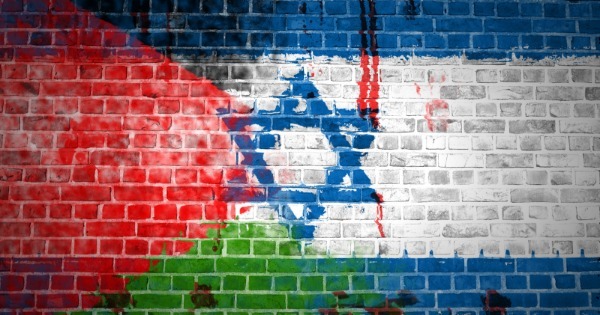
After weeks of escalating tensions, the most serious crisis involving Israelis and Palestinians is underway, since 2014.
The world is following the press and the internet on the pyrotechnics of scenes of rocket explosions launched by Hamas against various Israeli cities and of the Israeli Defense Forces air and artillery bombings on the Gaza Strip.. Civilian casualties can now be counted in the hundreds. In addition to actions in the military field, the dispute for winning support, sympathies or allies is fought with ferocity, through, and people who observe from afar see themselves in the crossfire of the war of narratives, exposed who are undergoing serious analysis, but also pure advertising, often unable to differentiate one from the other.
The events that culminated in the current violent conflict have as an immediate cause the court order for the eviction of Palestinian families living in the Sheikh Jarrah neighborhood, in East Jerusalem, and also the incidents that took place in the vicinity of the Temple Mount and Al-Aqsa Mosque, in the same neighborhood.
Tensions between Jews and Palestinians, inside Israeli territory, were already higher than normal a few weeks ago, due to the “TikTok intifada”, where videos of Arab Israeli youths assaulting Orthodox Jewish Israeli youths went viral on the app. These internal conflicts, among the citizens of Israel themselves, which even intensified and occurred in different cities throughout the week, are uncommon, and did not occur with this marked intensity in other moments of conflict between Israelis and Palestinians.
This year's calendar brought together two important moving dates for Muslims and Jews.. Day 08 of May, Muslims commemorate the beginning of the revelation of the Quran by the angel Gabriel to Mohammed, the so-called Night of Power, not only the most important date of Ramadan, but of the entire calendar of the Islamic faith. On the other hand, Jews prepared to celebrate “Jerusalem Day”, in day 10, date they remember what they consider to be the reunification of the city, occurred with the conquest of the eastern portion of Jerusalem in the Six Day War, in 1967. The groups met in the place that is sacred to both, in East Jerusalem, and the confrontation was inevitable.
The tempers raised by the series of recent events ended in violent clashes between Israeli and Palestinian police., around the Temple Mount and the holy Al-Aqsa Mosque, what enraged Israeli and Palestinian Muslims. Like this, on Monday, day 10, Hamas issued an unprecedented ultimatum to Israelis, informing that, if the police did not withdraw from the vicinity of the Al-Aqsa Mosque and Sheikh Jarrah neighborhood by 6 pm, would act in retaliation. The Israelis did not withdraw the police and the Palestinians started firing rockets from 18:05h. An important fact to highlight is that the Palestinians launched their rockets against the capital of Israel, Tel Aviv, action they had been avoiding in recent years. And bombed Jerusalem, holy city for jews and for muslims, for the first time in history.
All of this happens in the midst of a political crisis that occurs simultaneously, both in Israel and in the Palestinian territories. Prime Minister Benjamin Netanyahu has failed in his attempt to establish a coalition government after the 4th election in just two years. He faces low popularity ratings and his government, at this time, lacks the legitimacy of the popular mandate.
At the same time, Palestinian President Mahmoud Abbas has just canceled the presidential elections that were scheduled – the first since 2006 – after realizing that his party, o Fatah, was doing poorly in the polls. With both leaders needing to boost their popularity, the risk that they may make tougher decisions, or precipitated, becomes taller. This is especially true of Israel., where opposition leader Yair Lapid was trying to set up the government with the backing of the nationalist extreme right, who had abandoned Netanyahu, and also the Arab parties, an unprecedented attempt. With the escalation of tensions, this movement will become unfeasible, with clear benefits for Netanyahu.
Conflicts between Israelis and Arab states, who have already taken them to war on four occasions, have cooled in recent years, including the celebration, last year, the so-called Abraham Accords, between israel, United Arab Emirates and Bahrain, who joined Egypt and Jordan, increasing the number of Arab countries that maintain normal relations with Israel.
However, as this crisis once again proves, Israeli-Palestinian relations have made virtually no progress. Building an environment of mutual trust that provides peace and a definitive solution to the conflict does not seem to be an objective close to being achieved..
